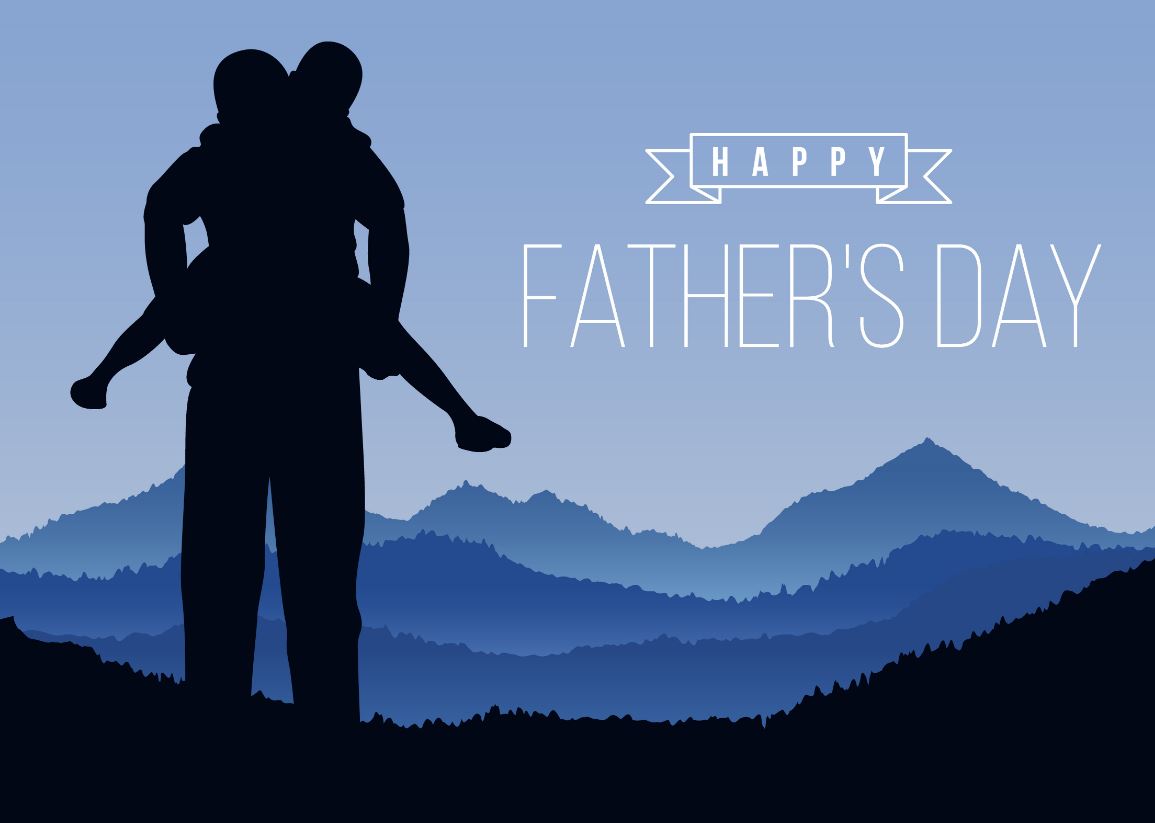June 14, 2023
In a time when men are unfairly denigrated and diminished and “patriarchy” is thought by some to be one of the most egregious evils, we welcome the celebration of Father’s Day and the opportunity to honor men, especially those who honor their role as a father.
Once again, we share with you some fine storytelling by Alexis Goodman as she offers more insights from her father, her life on a turkey farm, and how her father’s teachings have enriched her life. She shares research and helps us understand the critical role of fathers and what happens to children, women, and societies that fail to promote marriage and engaged fatherhood.
We, at United Families International, respect and honor fathers and wish to express our appreciation for their efforts and sacrifices.
Happy Father’s Day!
Celebrating fatherhood,
Wendy Wixom, President
United Families International
Father’s Day or “Fatherlessness” Day?
Alexis Goodman
I remember it was hot that day. It’s hot every summer day in Missouri, but it felt like that day was a special reminder to be grateful for air conditioning units. As it was, I was about as far away from an air conditioning unit as one can be and instead working at my father’s turkey barns. Sweat accumulated fast just sitting still and any movement felt like trying to move through water due to the raging humidity.
My father had given me the task of clearing out all of the over-grown weeds that threatened to smother the turkey barns outer walls. We had three barns, each around five hundred feet long.
Before starting, my dad suggested I get a long drink from the faucets outside one of the barns so that I stayed hydrated. I told him I was fine, that the water at the turkey barns was disgusting and tasted like metal.
My scrawny twelve-year old arms hefted the weed-eater over my shoulder and carried it to the first barn. Pretty soon after cranking the weed-eater to a start and mowing down any belligerent stalk of grass in the vicinity, my arms turned numb from the vibrations, and I struggled to carry the machine. I finished the length of one barn and started on the other side.
Sweat rolled in continuous waves down my face, some dripping from my eyebrows into my eyes and stinging them. The heat pounded on my back, and I started to feel light-headed. Setting the weed-eater down, I started to dry heave.
Immediately I set out to find my dad, and I remember finding him and telling him that I didn’t feel well and wanted to go home.
He watched me as I delivered my plea for immunity against weed-eating. As soon as I was finished, he mildly said, “We are Goodman’s, and we don’t quit. Now get some water and get started again”.
Burning with indignation, I finished off the three monstrous barns, and refused to admit that I was actually proud of myself for the completion of a hard job.
My father’s reaction was very different from what I imagine my mother’s would have been. My mother probably would have allowed me to end early and go home, encouraging me to eat something and drink water. I would have probably welcomed that reaction with open arms, but now looking back, I needed my father’s response for the lessons it has taught me and continues to teach me.
The different approaches that I came to expect from my mother and father regarding parenting is a necessity for child development. They were united where needed and distinct where crucial. I can’t imagine how much different I would have been had I been raised without my father.
Fatherhood over time
Fatherhood in general has been recorded to have evolved over time, from the cold, distant, and oftentimes severe patriarch of the family, to the “figure that foots the bill”, to the engaged and more helpful partner, to what it is today: absent.
The U.S. Census Bureau reported 18.4 million children living without their father in 2022. To put this in perspective, that would fill New York City twice over, or if you would rather, Los Angeles four times over. Note, in the chart below, that minorities are particularly hit hard by this social pandemic.

Children raised without fathers
There are a plethora of studies where the sole aim is to shed light on the importance of fathers in raising a child.
What kind of a life does a child without their father potentially face?
- Children are 47% more likely to live in poverty.
- Girls are reported to have more psychological issues and boys have more behavioral issues.
- Girls raised without their fathers are more likely to end up raising their children without a father.
- Boys raised without their fathers are more likely to become absent father’s themselves.
- Children without fathers living in the home have increased risk of child maltreatment.
- Children are more likely by 279% to carry guns and deal drugs than their peers with their fathers in the home.
- Children are more likely to suffer from depression if their father is imprisoned.
- Daughters are more likely to engage in risky sexual behavior.
- Children without their father in the home are less likely to do well in school.
The above list is a condensed and shortened version of what occurs “on average,” not a sentence of failure for all fatherless children. There are many heroic single mothers who have been successful at mitigating the effect of fatherlessness, but we cannot ignore the societal impact on children, overall.
The following words ring true:
“In point of fact, fatherhood shapes the future of our children.”
-Sean E. Brotherson and Joseph M. White
Fathers in mainstream media are portrayed to be stupid, stumbling, and lazy “fixtures” in the household, if they are portrayed at all.
In the book “Why Fathers Count”, the authors write, “In America, there is a whole generation of youth with no clear idea about what fathering and family life is all about. Their models are likely received from television, the movies, or other sources. There are many reasons that fatherhood is an important issue, but perhaps none more important than concern for what another generation of children without fathers will become as they move into adulthood.”
Men need to feel like they can be a good father and an even better dad. Fatherhood is not just “…merely providing food, clothing and shelter to children and letting mothers take care of the rest. Fathers should become fully engaged in their children’s social and psychological development from day one and provide their children with continuing reassurance of their love and devotion.”
Women, if they want a stable partner to help them navigate the journey of parenting, must have faith and show faith in their partner. For, “Simply stated, women’s ideas about men’s skills affect the way men think about their capabilities as fathers.”
What our society doesn’t seem to realize is that injecting more positive fatherhood into children’s lives could solve a lot of the societal ills that we all recognize and complain about. Fathers contribute something altogether different than a mother, and the same holds true vice versa. We need both to raise a healthy generation, but it starts with bringing fathers back into their children’s home.
My father has been an example to me of what it means to not quit when things get hard, to be honest and true to your beliefs, and what an ideal husband and father should be like. There aren’t enough words that can be dedicated to the love and sacrifice he has put into my family, and the world would be a better place with more fathers like him.
________________________________________________________
 Alexis Goodman was raised on a ranch in Dadeville, Missouri. She loves spending time with her husband, reading, hiking mountains, and learning new hobbies. She is currently a student at Brigham Young University-Idaho, where she is working to get a degree in Political Science with an emphasis on American Government.
Alexis Goodman was raised on a ranch in Dadeville, Missouri. She loves spending time with her husband, reading, hiking mountains, and learning new hobbies. She is currently a student at Brigham Young University-Idaho, where she is working to get a degree in Political Science with an emphasis on American Government.

